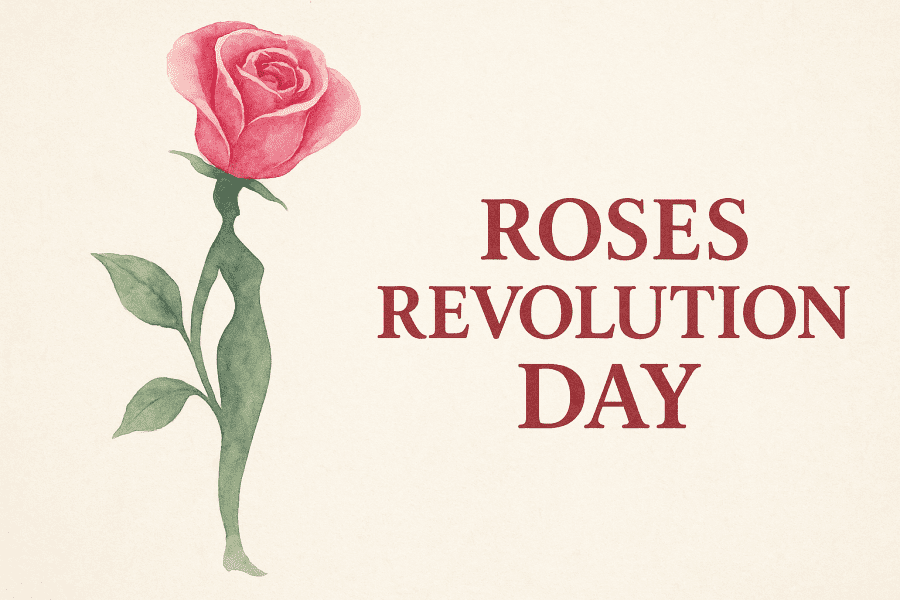Roses Revolution Day – Obstetric Violence

Understanding Obstetric Violence
Obstetric violence refers to the mistreatment or abuse women may experience during childbirth, encompassing physical, emotional, and verbal abuse, as well as neglect and non-consensual medical procedures. The World Health Organization (WHO) defines it as a violation of women’s rights to respectful and dignified healthcare during pregnancy and childbirth. Such experiences can have profound and lasting effects on women’s physical and mental well-being.
The Significance of Roses Revolution Day
Established in 2011 by Spanish birth activist Mara “Jesusa” Ricoy, Roses Revolution Day is observed annually on 25 November, coinciding with the International Day for the Elimination of Violence against Women. On this day, women worldwide place pink roses at the entrances of hospitals or delivery rooms where they experienced obstetric violence. This symbolic act serves to raise awareness about the prevalence of such violence and to honour the experiences of those affected.
 The movement has gained international recognition and support, with participation from various countries, including Germany, Luxembourg and the United Kingdom. It has been acknowledged by organizations such as UN Women and featured in reports by the United Nations Special Rapporteur on Violence Against Women.
The movement has gained international recognition and support, with participation from various countries, including Germany, Luxembourg and the United Kingdom. It has been acknowledged by organizations such as UN Women and featured in reports by the United Nations Special Rapporteur on Violence Against Women.
Project’s Commitment to Supporting Women
At Anah Project, we are dedicated to supporting women who have experienced obstetric violence. Our initiatives focus on providing safe spaces, counselling, and advocacy to empower women and ensure they receive the respectful and dignified care they deserve. We collaborate with healthcare providers, policymakers, and communities to raise awareness and drive systemic change in maternal healthcare practices.
Why Roses Revolution Matters to Us
Roses Revolution Day is more than a date on the calendar; it is a mirror reflecting the courage, resilience, and voices of women who have endured invisible forms of violence. At Anah Project, we see this day as an invitation to listen, learn and amplify those voices rather than simply “help.”
It reminds us that obstetric violence is part of a wider conversation about autonomy, dignity and respect, themes that resonate deeply with our mission. The pink roses are symbols, but the stories behind them are powerful calls for reflection. Each story challenges society to examine how women’s bodies and choices are treated and how communities can respond with empathy and justice.
Roses Revolution Day is also about reclaiming narratives. It is a space for women to share their experiences on their terms, to create solidarity across cultures and generations, and to remind everyone that change begins when the unseen is made visible. For us, the day is not just about raising awareness — it’s about celebrating courage, igniting dialogue, and imagining a world where all women can give birth safely, respected and heard.
 Through the lens of Roses Revolution, we ask our supporters: how can you honour voices that have been silenced? How can your attention, empathy, or action help shift cultural norms? By approaching the day as a moment of reflection and connection, everyone can play a part in building a more compassionate and just society.
Through the lens of Roses Revolution, we ask our supporters: how can you honour voices that have been silenced? How can your attention, empathy, or action help shift cultural norms? By approaching the day as a moment of reflection and connection, everyone can play a part in building a more compassionate and just society.
Reflecting on the Day
Roses Revolution Day is not just a day of remembrance but also a call to action. It challenges us to reflect on the current state of maternal healthcare and to strive for a future where all women can give birth free from violence and discrimination. By participating in this day, we contribute to a global movement that seeks to uphold the rights and dignity of women everywhere.


